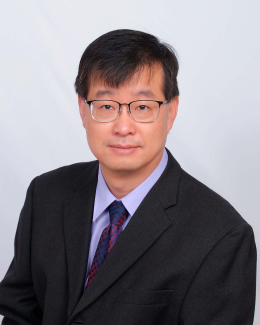Jun Ye, a distinguished Fellow at JILA and the National Institute of Standards and Technology (NIST) and a physics professor at the University of Colorado Boulder, has been honored with the 2025 Berthold Leibinger Zukunftspreis. This prestigious biennial award, established in 2006 by the German non-profit Berthold Leibinger Stiftung, recognizes outstanding research in laser science and technology and carries a prize of €50,000.
The award acknowledges Ye's groundbreaking work in optical clocks and frequency metrology, which has significantly advanced precision measurement and timekeeping. His contributions have deepened our understanding of fundamental physics and paved the way for technological innovations in various sectors.
“I am honored and humbled by this recognition,” says Ye. “Such an honor clearly reflects the scientific spirit of all the amazing people I have had the privilege working with over the years, including many of our outstanding graduate students, postdocs, and dear colleagues near and far.”
The award ceremony is scheduled for June 20, 2025, in Ditzingen, Germany, where Ye will be formally presented with the prize. This accolade places him among an esteemed group of scientists who have previously received the Zukunftspreis, including Nobel laureates Gérard Mourou and Anne L'Huillier.
Ye's recognition with the Berthold Leibinger Zukunftspreis not only highlights his individual achievements but also underscores the pivotal role of laser technology research in advancing science and industry globally.
Written by Steven Burrows, JILA Science Communications Manager



 The Physics Frontiers Centers (PFC) program supports university-based centers and institutes where the collective efforts of a larger group of individuals can enable transformational advances in the most promising research areas. The program is designed to foster major breakthroughs at the intellectual frontiers of physics by providing needed resources such as combinations of talents, skills, disciplines, and/or specialized infrastructure, not usually available to individual investigators or small groups, in an environment in which the collective efforts of the larger group can be shown to be seminal to promoting significant progress in the science and the education of students. PFCs also include creative, substantive activities aimed at enhancing education, broadening participation of traditionally underrepresented groups, and outreach to the scientific community and general public.
The Physics Frontiers Centers (PFC) program supports university-based centers and institutes where the collective efforts of a larger group of individuals can enable transformational advances in the most promising research areas. The program is designed to foster major breakthroughs at the intellectual frontiers of physics by providing needed resources such as combinations of talents, skills, disciplines, and/or specialized infrastructure, not usually available to individual investigators or small groups, in an environment in which the collective efforts of the larger group can be shown to be seminal to promoting significant progress in the science and the education of students. PFCs also include creative, substantive activities aimed at enhancing education, broadening participation of traditionally underrepresented groups, and outreach to the scientific community and general public.